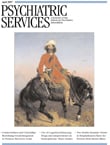Nonverbal Learning Disabilities: A Clinical Perspective
Nonverbal learning disorder (NLD) is a neurobehavioral disorder defined by impairment in the processing of nonlinguistic visual-perceptual information and neurocognitive deficits in perceiving, expressing, and comprehending nonverbal information. Not confined to childhood, this disorder affects people academically, vocationally, socially, and emotionally.
Until NLD is diagnosed, misunderstandings abound for those who suffer from it. With diagnosis, a comprehensive approach to treatment can mitigate its effects. Many have believed that because of limitations in the insightfulness and relatedness of persons with NLD there is no place for psychotherapy in the treatment plan. Joseph Palombo, a clinical social worker at Rush Neurobehavioral Center with a career interest in social and emotional aspects of learning disorders, presents a strong argument that psychotherapy grounded in self psychology can relieve suffering and strengthen the social and relational capacity of persons with NLD.
The clinician's work begins, Palombo maintains, with thoroughly understanding the neuropsychology of the disorder, and he offers an excellent review of basic research and current theories. Building upon this foundation, he presents the neurobiology and phenomenology of its social and emotional features. Then, in the context of theories about self psychology, he presents his own work on the sense of self of persons with NLD.
Palombo has coined the term "mindsharing" to extend concepts of intersubjectivity and theory of mind to include "an understanding of how others feel, in addition to an understanding that others have beliefs, desires, and intentions." Most mindsharing functions occur nonverbally; empathy is a type of mindsharing, as are nonverbal aspects of communication and language. The clinician's challenge is to assist persons with impairments in nonverbal communication to become more attuned to nonverbal intrapersonal, social, and emotional aspects of their own and others' experiences. "The goal of treatment is twofold: (1) to strengthen their sense of self sufficiently so that they feel stable and cohesive in the face of the stresses to which they are exposed and (2) to provide them with an understanding of the nature and sources of their problems so that they can gain a sense of history and a coherent self narrative."
Limited in nonverbal communication, an individual with NLD is challenged to develop a cohesive sense of self and narrative coherence. By applying the insights of mindsharing—creating and discovering shared meaning in not-yet-integrated events—the clinician helps the child to "modify the themes that organize his or her self narrative." Illustrated with good clinical cases, Palombo provides a sophisticated contribution to guide the clinician's work. His approach is not a prescriptive how-to, but the clinician will find a pathway that can provide meaningful assistance for persons with NLD.
Palombo focuses on work with children, but the therapeutic goal of promoting cohesion in self narratives is relevant to all persons with NLD. The book is valuable as well for assessment professionals. It identifies subtypes of NLD, differentiates NLD from Asperger's syndrome, and includes an excellent summary of the social-emotional symptoms of NLD in the appendix.



